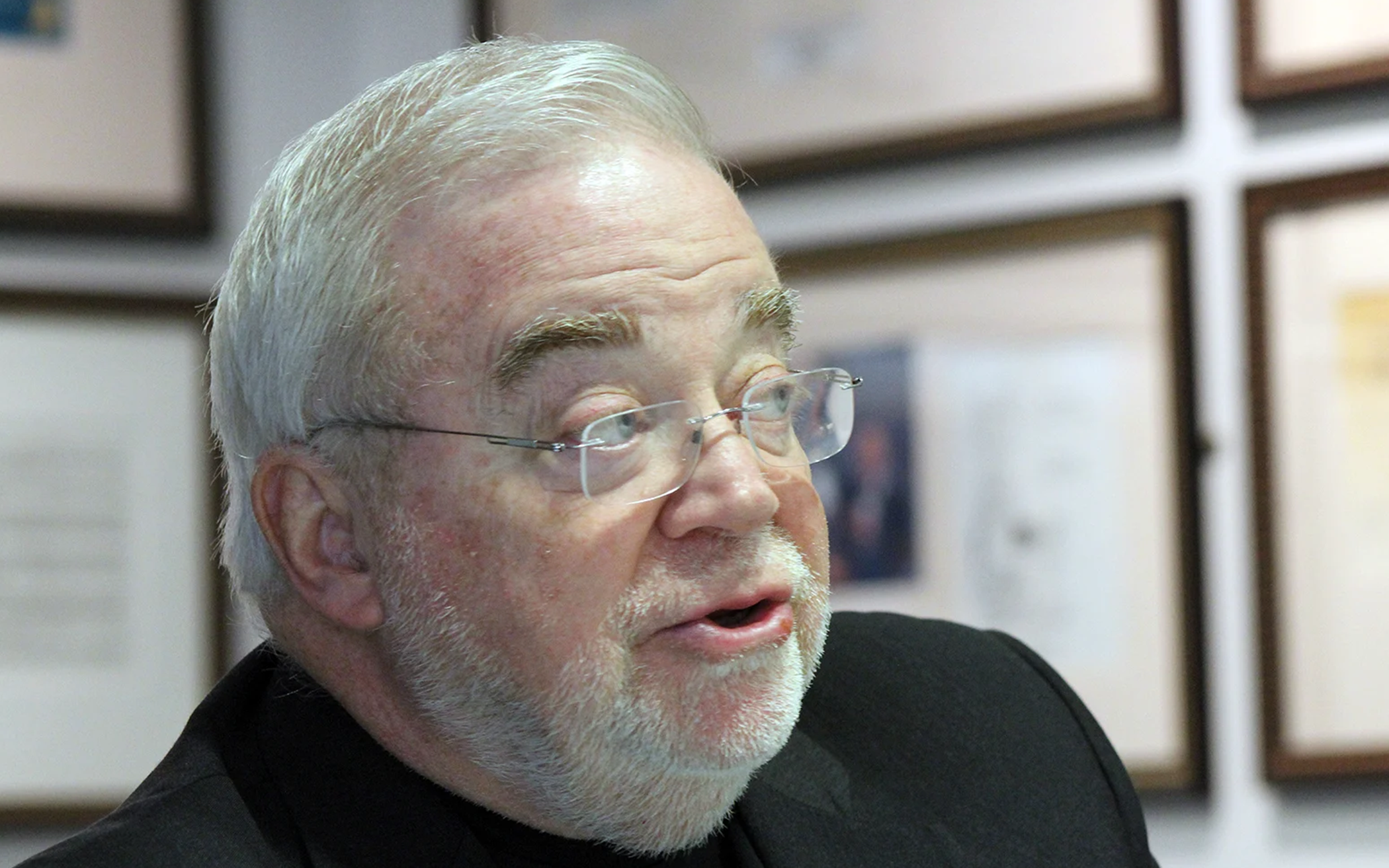News editor's note: The Banner has a subscription to Religion News Service and occasionally re-publishes articles of wide Christian interest, according to the license. This article was originally published here.
Colin Watson, Sr., currently serving as executive director of the Christian Reformed Church in North America, also serves on the board of Sojourners. Watson told The Banner that the organization’s board was informed about this issue as it occurred. “I believe the resolution in this case, i.e. the separation of the editor-in-chief and the president's title, is appropriate,” he said. “I support this new direction for the structure of the organization.”
The Christian magazine Sojourners has replaced founder and president Jim Wallis as editor in chief and announced a new policy of editorial independence from the organization's advocacy work.
The decision came after weeks of turmoil over Wallis' removal of an essay criticizing white supremacists within the Catholic Church, which led two staffers of color to resign from the magazine.
Wallis, a prominent progressive theologian and activist who has also written for RNS, will continue to serve as president of the Sojourners organization, the magazine announced Friday afternoon (Aug. 14). He had served as a leader at the magazine since its founding in 1971 as the Post-American.
Sandi Villarreal, who had been the executive editor at Sojourners, has accepted the role of editor in chief. According to the statement, she has been promised editorial independence in overseeing Sojourner’s web and print publications.
The controversial essay, written by University of California Los Angeles lecturer Eric Martin, was published in the magazine’s August print issue under the title “Harboring a Culture of Hate" and online as “The Catholic Church has a Visible White-Power Faction."
On July 28, following backlash from Catholic leaders, Wallis removed the article from the site, saying it “made unwarranted insinuations and allegations against many Catholics.”
In three lengthy subsequent editor’s notes, he criticized Martin’s claim that U.S. bishops voted to reject language condemning swastikas, Confederate flags and nooses in their 2018 pastoral letter against racism. In fact, he wrote, the bishops’ letter does name nooses and swastikas as a “tragic indicator of rising racial and ethnic animus.”
The article has now been restored to the site with a correction about the bishop's letter appended above it. The publication has also committed not to remove published articles from its site.
As the controversy played out online and within the organization, two associate web editors, Dhanya Addanki and Daniel José Camacho, publicly resigned from the publication.
Addanki said that the article’s removal plus “three years of experiencing this toxic environment” as a Dalit woman and woman of color pushed her to leave.
"I'm unable to continue my role here in good conscience," Camacho said in a public statement on Aug. 10. “It's become clear that I cannot stay here without compromising my own values and commitments to social justice, journalistic integrity, and honoring diverse and marginalized voices."
The removal of Martin’s article, he wrote, reflects “a larger and troubling pattern when it comes to editorial standards and treatment of staff.” Camacho also said there were “strong, non-transparent restrictions” on publishing stories related to LGBTQ issues and women’s reproduction. In emails to Sojourners staff, Camacho had urged Sojourners’ leadership to post a genuine apology and reinstitution of the article.
After news of Wallis' replacement broke, Camacho said it had only happened because two editors of color had resigned after their concerns were dismissed.
"What a shame," he wrote on Twitter. "This wrong needs to be corrected in many ways beyond just prayer."
During the controversy, at least three columnists, including Carolina Hinojosa-Cisneros, Aaron Sanchez, and Chris Karnadi, also said they would no longer write for the magazine. They were joined by several freelance writers, including Sarah Ngu, Amy Fallas, and Jessica Kantrowitz.
After Camacho’s resignation, which drove much of the online backlash to Wallis’ removal of the essay, Wallis posted a column Aug. 12 saying he “never felt such agonizing pain over any editorial decision in my 49 years here.”
He admitted that the decision to remove the article was wrong, saying the decision "damaged our journalistic integrity, betrayed the trust of our authors, and undermined our editorial team.
“At the heart of the situation is the natural and ongoing tension between our identity as a publication and as an advocacy organization in and supportive of broader movements,” he wrote. “But this time that tension became untenable and failed completely with painful consequences. As both President and Editor in Chief, I wish I had found a way to handle this particular conflict very differently, and I failed at that.”
Wes Granberg-Michaelson, chair of the Sojourners board of directors, told RNS in an email that the organization has “gone through a period of deep turmoil, pain, and reflection.”
He said that Wallis asked Villarreal “to take on the role and responsibility of Editor in Chief,” and Wallis agreed that the organization needed to “clarify editorial independence.”
Granberg-Michaelson expressed his support for Wallis as president of Sojourners and said he was involved in discussions about the article at the center of the controversy. He initially agreed with the decision to remove the article from the Sojourners website.
“I also agree in retrospect that this was the wrong decision,” he said.
“Through this time, certainly one of the most difficult in our long history, we are learning and taking decisive steps for the future, with the support of Jim as president.”
© 2020 Religion News Service
About the Author
Religion News Service is an independent, nonprofit and award-winning source of global news on religion, spirituality, culture and ethics.

